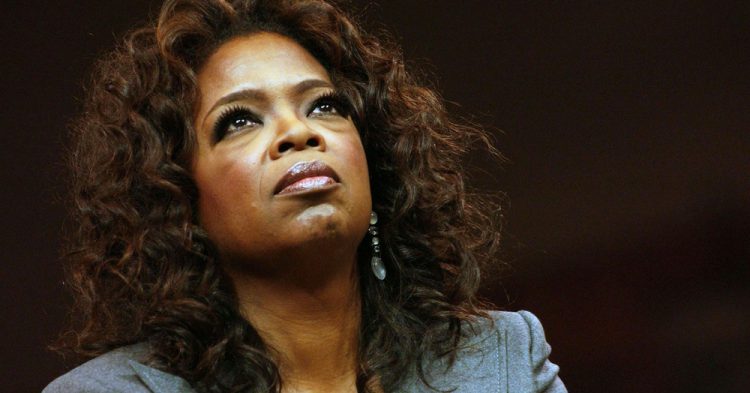Jillian Michaels, a well-known fitness instructor and television personality, has recently made claims about Oprah Winfrey’s involvement with the weight loss drug Ozempic. These allegations have come to light following Oprah’s admission that she used medication to aid in her remarkable 40-pound weight loss transformation. In this article, we will delve into the details of this controversy and explore the potential financial incentives behind Oprah’s association with Ozempic.
Last month, Oprah Winfrey, a prominent media mogul and philanthropist, made headlines when she publicly acknowledged her use of weight-loss medication, finally ending years of speculation and rumors about her weight loss journey. This admission was a significant departure from her previous stance, where she vehemently denied any intentions of using Ozempic or similar drugs for weight loss, claiming that she would never take such a “shortcut” to shedding pounds. However, she did not disclose the specific medication she was using.
Jillian Michaels, known for her role as a trainer on “The Biggest Loser” and her fitness empire, has now raised concerns about Oprah’s association with Ozempic and its potential financial implications. Michaels, 49, alleges that Oprah, worth an estimated $2.8 billion, has a financial interest in Ozempic due to her long-standing partnership with WeightWatchers, a company in which Oprah owns a 10 percent stake.
In Michaels’ words, “Oprah has a financial incentive with Ozempic. Oprah, I believe, is one of the biggest shareholders of WeightWatchers, and WeightWatchers is now in the Ozempic business. I believe [WeightWatchers] bought a company that provides access to these drugs, now there is a financial interest in these drugs. I think it’s important to put that out there right off the bat.”
The crux of Michaels’ argument is that Oprah’s involvement with WeightWatchers, a company that offers “doctor-led access to prescription medication,” including Ozempic, suggests a potential conflict of interest. Oprah’s significant influence and ownership stake in WeightWatchers raise questions about whether her endorsement of Ozempic is driven by financial motives rather than genuine belief in the product’s efficacy.
It’s important to note that Ozempic has gained popularity as a weight-loss medication, and its use among celebrities and individuals seeking to shed pounds has grown in recent years. This popularity has been fueled by its effectiveness in aiding weight loss and its approval by medical professionals for managing weight-related issues.
WeightWatchers’ CEO, Sima Sistani, acknowledged the company’s shift toward providing access to prescription medication and emphasized their commitment to destigmatizing conversations about obesity. This move aligns with the broader trend of addressing obesity as a complex issue that requires various approaches, including medical intervention, to tackle effectively.
Oprah Winfrey’s admission about her use of weight-loss medication came as a surprise to many, given her previous stance on avoiding such medications. She explained that she decided to be open about her weight loss journey to combat the stigma associated with using medication for weight management. Oprah expressed that she was “done with the shaming” and wanted to share her experience to help others who may be facing similar struggles.
The media icon credited Ozempic for its role in her weight loss journey, emphasizing that it is a medically approved prescription for managing weight and promoting overall health. She expressed relief, redemption, and gratitude for having access to a tool that has made a significant difference in her life. Oprah also revealed that she had recommended the weight loss aid to others before deciding to use it herself.
Oprah’s journey to better health and weight management began after undergoing knee surgery in 2021. This pivotal moment inspired her to embark on a path toward improved health and vitality. She made several lifestyle changes, including adopting a daily routine of eating her last meal at 4 pm, drinking a gallon of water a day, and using WeightWatchers’ principles of counting points. Regular hikes and exercise became integral components of her routine.
She emphasized that maintaining her weight loss required a holistic approach that combined medication with a commitment to exercise and a healthy lifestyle. Oprah dismissed the notion that medication was a “shortcut” and emphasized that her weight loss journey was a result of hard work and dedication.
Oprah’s decision to be open about her use of weight-loss medication was influenced by a panel conversation she had with weight loss experts and clinicians. This discussion, which took place in July and was released online in September, prompted her to reevaluate her stance on weight loss medications. During the conversation, experts highlighted that obesity is a metabolic disease influenced by factors beyond willpower, and some individuals are predisposed to store more fat due to their metabolic makeup.
In conclusion, the controversy surrounding Oprah Winfrey’s association with Ozempic and her admission of using weight-loss medication has sparked a broader conversation about the complexities of weight management and obesity. Jillian Michaels’ claims raise valid concerns about the potential financial incentives tied to Oprah’s involvement with WeightWatchers and Ozempic. However, it’s essential to consider the evolving landscape of weight management, where medical intervention is increasingly recognized as a valuable tool in addressing obesity as a multifaceted issue. Oprah’s decision to share her journey is a step toward destigmatizing the use of weight-loss medication and promoting a more inclusive conversation about health and wellness.
